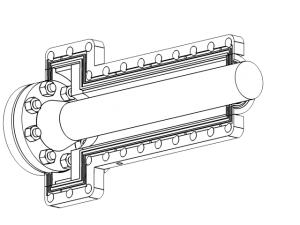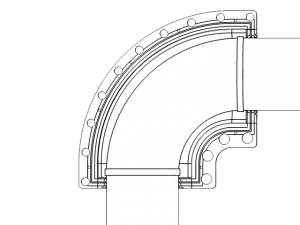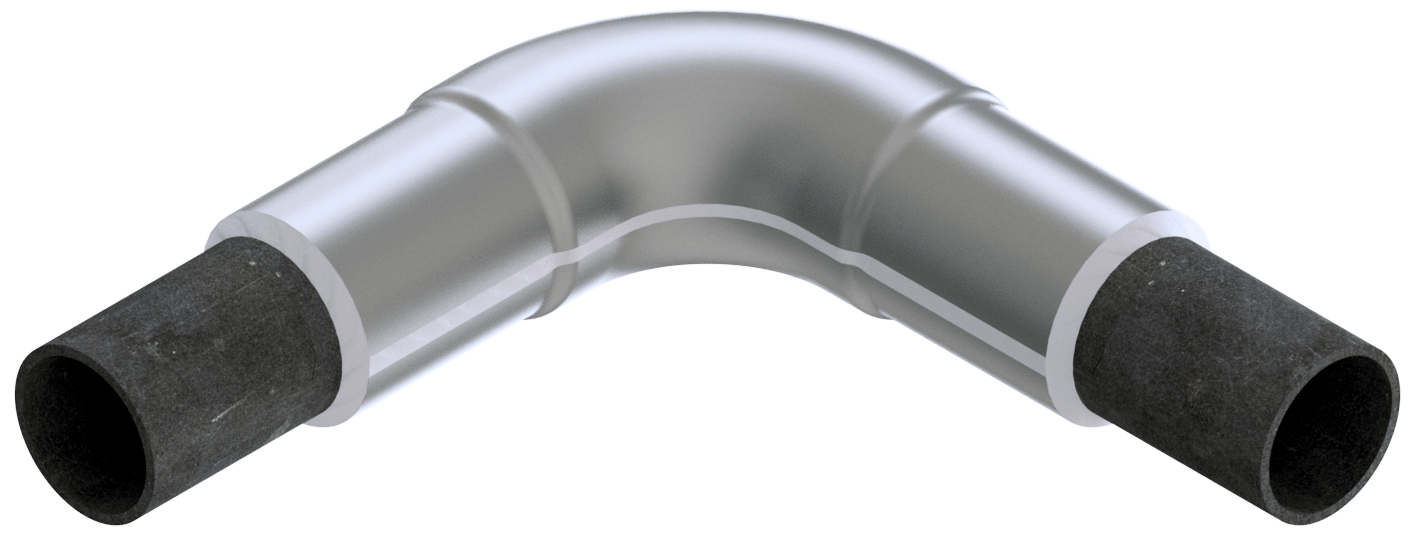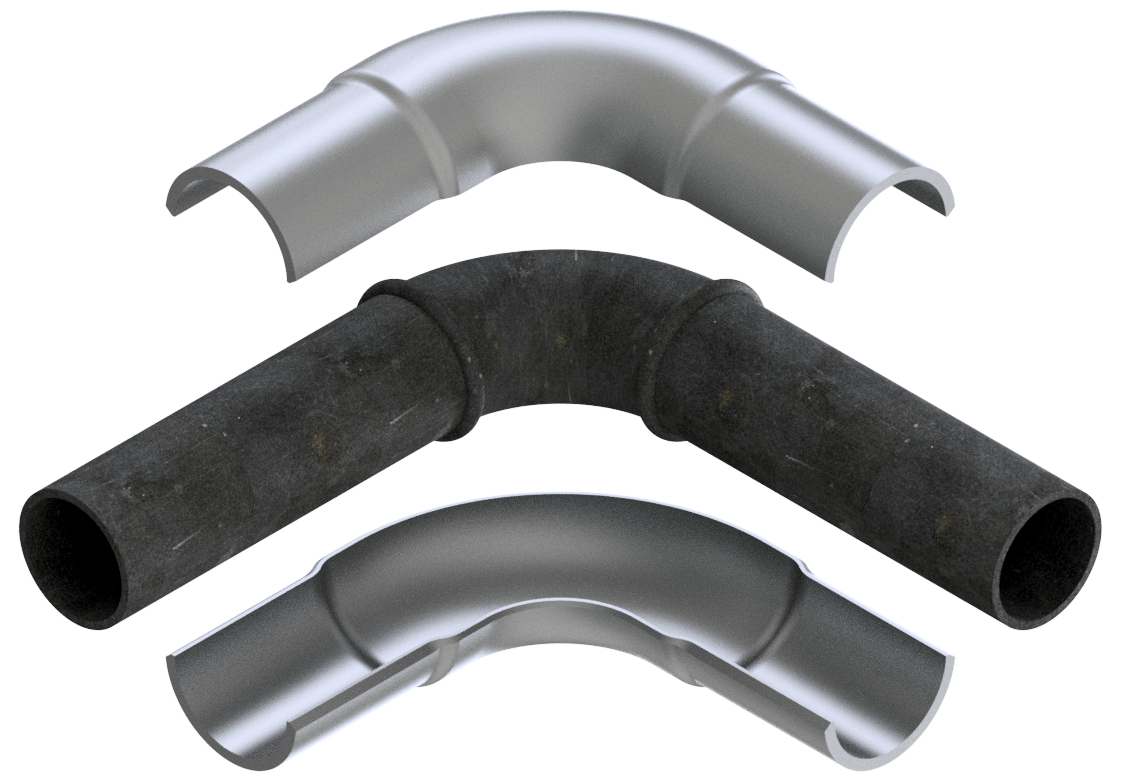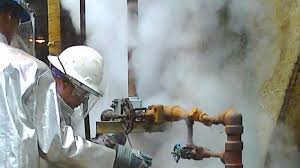
Piping Leak Solutions
Piping leaks are addressed with a Full Leak Repair Enclosure
Piping varies with a wide range of size and complexity, each presenting their own unique tendency to leak. Piping leaks are caused from many sources, a few are suggested
below:
- Erosion and Corrosion
- Failed welds
- Cavitation
- Chemical attack
- Pipe vibrations
- Over pressurization caused by plant upsets
Our engineers, working closely with your shop and field personnel, can develop industry leading solutions to address your leaks and thinning pressure components.
Common sealing techniques and designs
Their are three primary techniques for sealing piping leaks:
- Void Fill
- Perimeter Seal / Seam Seal
- Weld-on Fitting or Sleeve
The Void Fill process involves injecting the entire cavity of the enclosure with sealant to act as a barrier to leakage, and reinforce the outside of the pipe. While Void Fill enclosures are typically the simplest by design, they cannot be used on leaks where a crack is present, or where the pipe wall thickness is insufficient to withstand the sealant external pressure. Sealant pressure can be significant, there fore EngRx calculates maximum injection pressure for a an enclosed pipe or fitting to ensure that pipe wall will not collapse and bolted connections such as flanges and bonnets are sufficient. Along with maximum injection pressure, EngRx will calculate Sealant Volume to fill the enclosure cavity. Often known as Void Fill Volume, this calculation gives the on-line leak repair field technicians a measure of sealant required to fill the enclosure. Our design engineering techniques will consider sealant egress into the piping system and advise upon alternate enclosure design styles.
Perimeter seal enclosure designs offer a solution to sealant egress, or “mainlining” into the piping system. They incorporate a perimeter seal along the split line of the enclosure, and join to the bores which seal onto the pipe or equipment. The design process is more involved, but resulting enclosures offer the advantage of eliminating the risks of; “mainlining” and external pressure damaging the enclosed piping or equipment. Perimeter seal designs will use various seals materials such as: Braided Graphite Rope Packing, Teflon Packing, Copper and Stainless Steel Tubing, and Injection Compound to name a few. These seals are selected by EngRx engineers to ensure compatibility with both the piping materials and the fluid service.
EngRx offers the design and fabrication of Weld-On enclosures as an alternative to Bolt-On injectable style enclosures. Weld-On enclosures offer a more permanent solution to addressing thinning wall, leaks and compromised pressure equipment. This style of leak repair enclosure is designed with weld bevels along the split lines and bores to accommodate field welding. Weld-on enclosures should be considered in cases of extreme vibration, highly erosive and corrosive conditions, extreme thermal cycling and upset process conditions. Weld-On enclosures are designed to be installed during live process or during shut-downs and turnarounds. Often vent and drains are added to these fittings to accommodate installation and future process monitoring. There are cases that Weld-On enclosures are filled with leak sealing compound, but most commonly, the void fill with service fluid. Depending on the application, Weld-On enclosures can be designed as both structural and non-structural. Weld-On enclosures are detailed in ASME PCC-2 Article 204.




